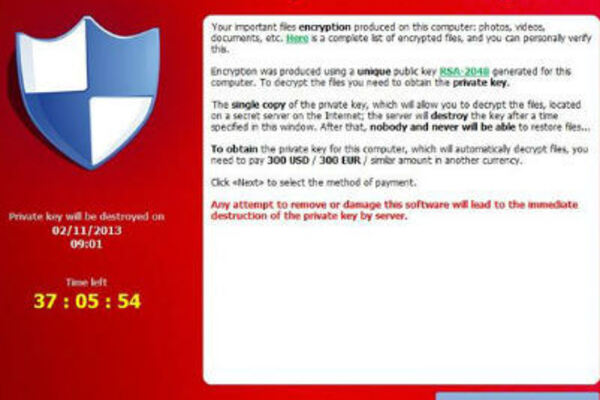Ransomware leads to 'animal abuse images' confession
James Delahunty
19 May 2015 16:13

A man turned himself in to police in the UK to confess to possessing sexual images involving animals after being threatened by ransomware on his PC.
The 61-year old living in Scotland had encountered a run-of-the-mill ransomware infection on his Windows PC in 2013. Unlike more advanced ransomware that uses cryptography to wall off access to files on infected PCs until a ransom is paid, this infection just locked the screen and threw up a phony warning from police.
Such ransomware infections often claim to have detected illegal browsing activity, illegal files such as pornography or copyright infringing content, and threatens to forward the information to authorities unless a ransom is paid. Some even use location information on the PC to pick the relevant police force based on the territory the victim resides in.
In this case, the man in question reportedly paid £100 in ransom to regain access to his files, which actually were never encrypted at all. To his dismay, the access was not restored and fearing he was about to be arrested, he turned himself in to police.
He admitted to possessing hundreds of images of animals of a sexual nature, including horses, dogs and pigs, although he maintained that he never actually looked at them after downloading them.
Earlier this year, he pleaded guilty to possessing the images at Carlisle Crown Court and this week he was ordered to submit to a 12-month supervision order, a non-custodial sentence.
The danger of ransomware
While it is easy to laugh at the circumstances that unmasked this man's dark secret and bizarre desires (as well as criminal activity in the UK), ransomware has the ability to damage the reputation of innocent victims too. Think, for example, how it would look if a spouse or partner turned on a computer at home only to see such a serious looking warning about illicit activity.
Or what if such an incident happened at work and a tech-illiterate boss were to believe the claims made by the ransomware?
It seems highly likely that such infections have caused serious trouble for innocent people all around the world.
More nefarious ransomware infections also encrypt files and folders and won't decrypt them until a fee is paid, and there's no guarantees even if the victim reluctantly coughs up the ransom.